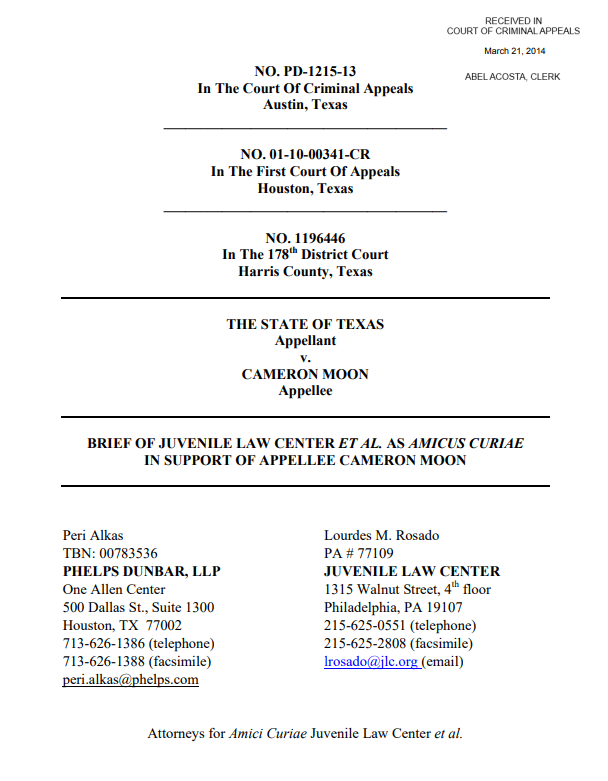
Summary of Argument
Amici respectfully argue that the State’s faulty contention – that a juvenile court may waive jurisdiction of a youth and transfer the youth to adult court based on the charged offense alone, and without an individualized determination of the youth’s maturity, culpability and capacity for change -- is constitutionally infirm in light of United States Supreme Court jurisprudence. Specifically, the State’s flawed interpretation of Texas’s waiver statute is unconstitutional because it (1) creates an irrebuttable presumption in favor of culpability and against the child’s capacity for change and rehabilitation and (2) does not allow for individualized determination’s prior to transfer, in accordance with the requirements of TEX. FAM. CODE ANN. § 54.02(a) and (f) (2012).
Like Texas, most state transfer statutes require some individualized determination regarding a youth’s age, developmental level, degree of culpability and capacity for change by a court prior to a youth’s prosecution in adult court. Thus, the Texas statute incorporates the holdings of Kent v. United States, 383 U.S. 541 (1966), and of this court in Hidalgo v. State, 983 S.W.2d 746 (Tex. Crim. App. 1999), by mandating an inquiry into the youth’s particular attributes. But if this court were to accept the State’s flawed reading of the waiver statute, Texas would become an outlier in not requiring a court to consider constitutionally relevant factors before subjecting a youth to prosecution and sentencing in the adult criminal system. Moreover, once in adult court, youth such as Cameron are subject to sentencing statutes that prevent the youth from demonstrating his capacity for rehabilitation to a sentencing judge and a parole board so that he may seek a shortening of his time in confinement.
In essence, the State is urging this Court to adopt an interpretation of the waiver statute that would create automatic transfer to adult court at a time when public policy and opinion overwhelmingly opposes the automatic transfer of youth charged with certain crimes to adult courts.
All of these factors weigh in favor of this Court rejecting the State’s contention that a juvenile court may waive jurisdiction based on the sole factor of the alleged offense, and instead affirming the Court of Appeal’s holding that the juvenile court misapplied the Texas waiver statute and thus abused its discretion in waiving its jurisdiction over Cameron and transferring him to adult court.